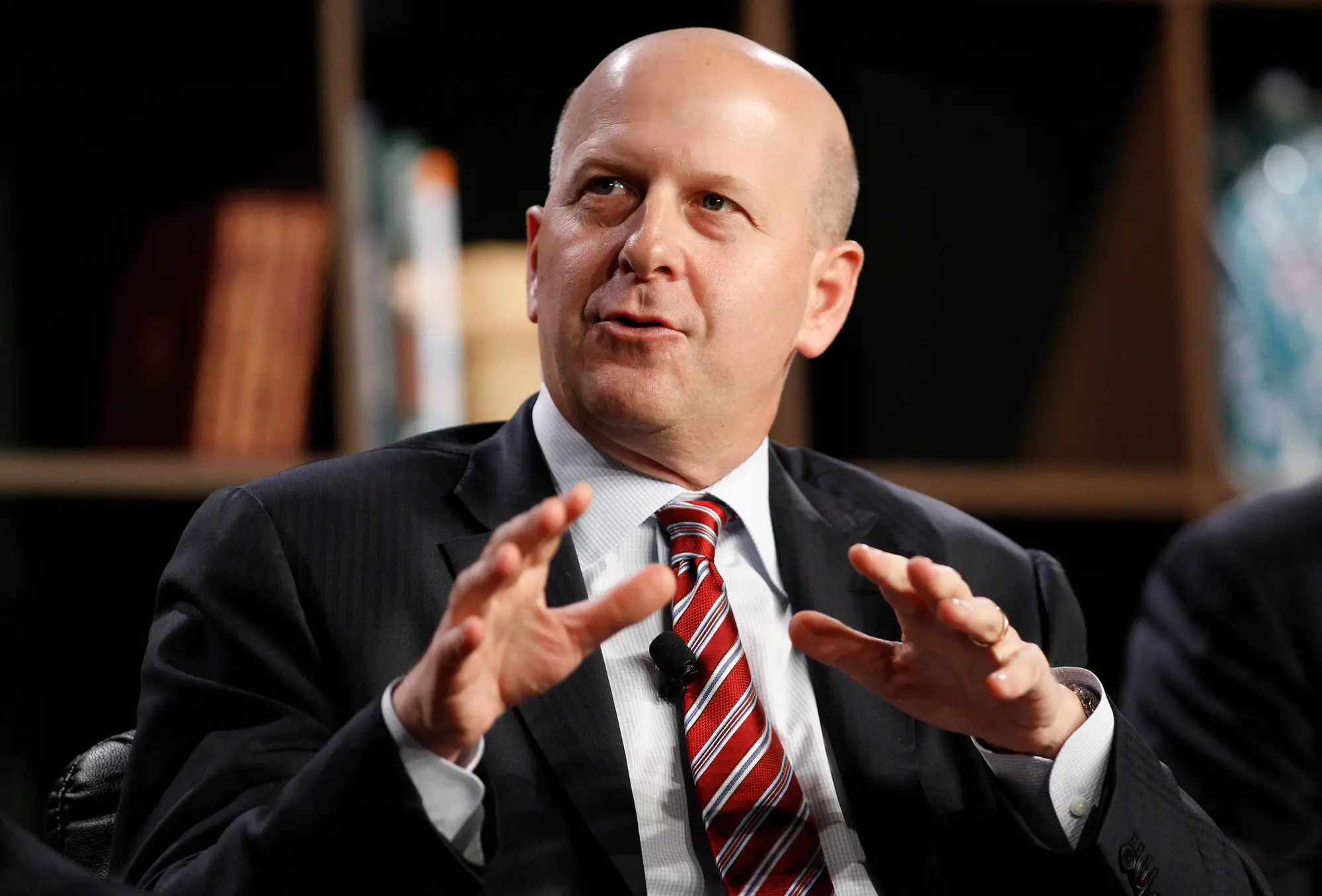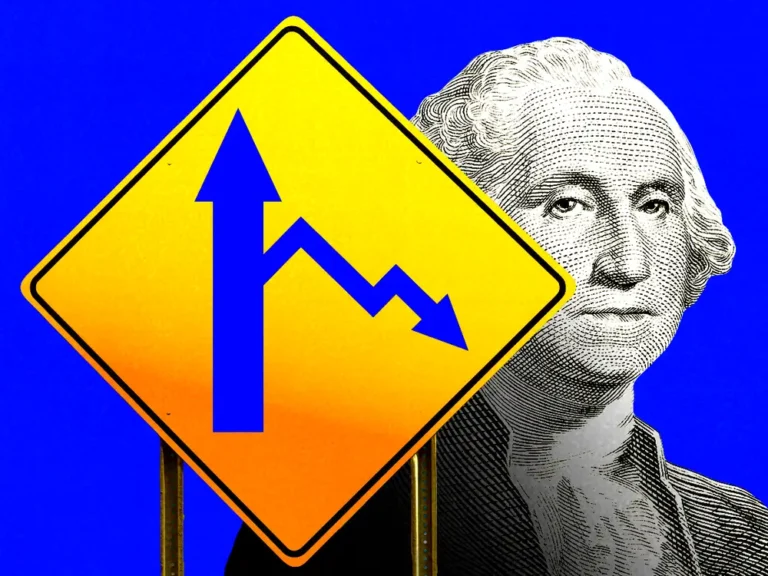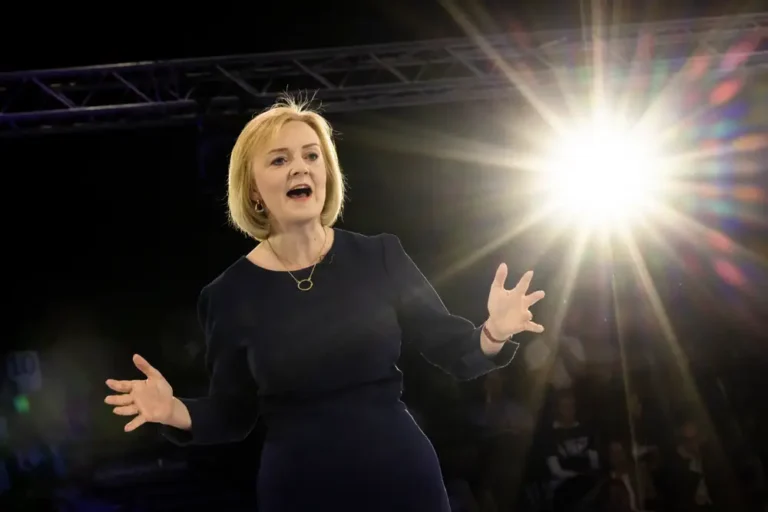Why Goldman Sachs thinks the merger machine is revving up

Goldman Sachs CEO David Solomon is asking workers to be back in the office five days a week.
Goldman Sachs’ CEO delivered a sunny forecast for the investment-banking industry on Monday with comments suggesting that the dealmaking freeze that has crippled Wall Street in recent years may finally be thawing.
In a conference call to discuss second-quarter earnings, David Solomon told shareholders and analysts that the firm is seeing a “backlog” of transactions that’s “up significantly” this quarter.
“From what we’re seeing, we are in the early innings of the capital markets and M&A recovery,” he said on the call. “While certain transaction volumes are still well below their 10-year averages, we remain very well positioned to benefit from a continued resurgence in activity.”
In its global banking and markets business line, the firm recorded more than $8 billion in net revenue for the second quarter of the year — a 14% increase from the same quarter last year but a 16% drop from the first quarter of this year.
Investment-banking net fees were $1.73 billion, Goldman said, up 21% from the second quarter of 2023, because of “significantly higher net revenues” from sources like leveraged financings and the underwriting of equity and debt.
Solomon said debt underwriting revenues rose 39% to $622 million due to strong leveraged finance activity, which he said signals a return to private-equity dealmaking. “We are seeing a material increase in client demand for committed acquisition financing, which we expect to continue on the back of increasing M&A activity,” he said.
He also said he sees demand for generative artificial intelligence driving more dealmaking and client financing needs.
Solomon’s bullish outlook stands in contrast with recent comments from the CEO of another major Wall Street bank, Jamie Dimon of JPMorgan Chase.
Though Dimon didn’t participate in his bank’s earnings call Friday, the CEO of America’s biggest bank by assets lamented the state of the world and expressed concerns about threats to the economy in written remarks.
“The geopolitical situation remains complex and potentially the most dangerous since World War II,” Dimon wrote. He added that JPMorgan expects inflation and interest rates to “stay higher than the market expects” for some time,” citing driving forces like fiscal deficits, infrastructure needs, and the “remilitarization of the world.”
And on the bank’s earnings call, the bank’s chief financial office pointed to several factors that could further cool mergers, as B-17 reported.
Since Dimon’s ominous commentary last week, the world has experienced another tremor: a shocking but failed assassination attempt on US President Donald Trump at a Pennsylvania rally over the weekend.
Solomon addressed the event at the outset of Monday’s call, calling it a “horrible act of violence.” He turned later to how the results of this fall’s presidential election could impact world markets.
Whichever way the race swings, Solomon projected a sense that he’s unfazed.
“I can’t see what the next 100 days leading up to our election will bring, but I think we’re well positioned to serve our clients regardless of the environment,” Solomon told an equity research analyst. “The clients are very active at the moment, and I’d think they are probably going to continue to be active.”
Private-equity activity is on the rise
Financial sponsors — an industry term for the funds that dispense private capital raised from investors rather than strategic corporate buyers — have been in a holding pattern amid a series of interest-rate hikes by the Federal Reserve aimed at cooling runaway inflation. It’s a big reason overall deal activity remains at levels that Solomon on Monday characterized as below historical 10-year averages.
The firm’s conversations with clients, however, prognosticate an about-face could be on the horizon, he added.
“I think, especially given the environment that we’re in, that you’re going to see over the next few quarters in 2025 kind of a re-acceleration of that sponsor activity,” Solomon continued, adding that he sees the next three to five years of M&A activity being flush with activity from these funds.
Indeed, activity from financial sponsors is “starting to accelerate,” he said. He expects to see more because investors — known as limited partners, who contribute large pledges of capital to these investment vehicles — are itching for their money to start generating returns.
“We’re seeing it in our dialogue with sponsors,” Solomon said. “There’s pressure from LPs to continue to turn over funds, especially longer-dated funds,” he added. “I’m just not smart enough to tell you exactly which quarter and how quickly, but we are going to go back to more normalized levels.”
Higher financing
To be sure, some big deals have already been announced.
On the strategic side, Goldman advised on the roughly $60 billion sale of the oil and gas company Pioneer to Exxon. In May, the firm also worked on a big take-private (in which a private-equity firm buys a publicly-traded company), helping the PE firm Permira buy website development company Squarespace for almost $7 billion.
Solomon said Goldman also expects to benefit from the uptick in demand through its lending capabilities.
“When there are more M&A transactions, whether it was financial sponsors or big corporates, there is more financing attached to that,” he said. “People need to raise capital to finance those transactions. They need to reposition balance sheets. They need to manage risks, restructure transactions, and so there’s a multiple effect as those activities increase.”
He concluded: “Our whole ecosystem gets more active as transaction volumes increase on the M&A side.”
Aside from private-equity appetites and a growing pipeline for lending, Solomon pointed to another force that will help boost business: The rise of generative AI.
Goldman’s board of directors just returned from a week in Silicon Valley, Solomon said, “where we spoke with the CEOs of many of the leading institutions at the cutting edge of technology and AI.” His comments come as other top Goldman partners predict that the material impacts of AI could hit the bank’s workforce as soon as 2025.
“We all left with a sense of optimism about the application of AI tools and the accelerating innovation in technology more broadly,” he said of the trip out west. “The proliferation of AI in the corporate world will bring with it significant demand-related infrastructure and financing needs which should fuel activity across our broad franchise.”






